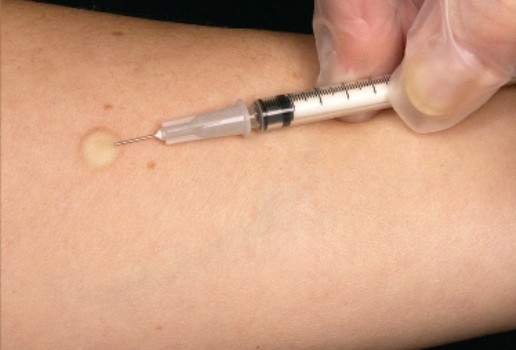With one third of the world’s population infected with tuberculosis (TB), it is second only to HIV/AIDS as the greatest killer. Although not as common in the UK, Birmingham has one of the highest rates of TB in the country and the disease is on the increase in the city, with around 400 cases diagnosed every year.
So what is TB? Hanna Kaur, lead nurse for TB at Heart of England NHS Foundations Trust, said: “Tuberculosis is caused by mycobacterium tuberculosis, a bacterial infection spread through inhaling tiny droplets from the coughs or sneezes of an infected person. It is a serious condition which mainly affects the lungs, but can also affect other parts of the body, including the bones and nervous system.”
People who are particularly at risk of catching TB include:
- Those living in areas where levels of existing TB infection levels are high.
- People who have been in close contact with someone who has been infected.
- Those who have a weak immune system.
- People who have lived in or travelled to parts of the world where TB is common.
Symptoms will vary depending on where the infection occurs. A cough that lasts for more than three weeks or coughing up blood, night sweats, weight loss, fatigue and loss of appetite are the most common symptoms to look out for. You could also end up having headaches, abdominal pain and swollen glands.
As part of her role as lead nurse for TB at the Trust, Hanna is responsible for managing a team of nurses. She said: “We oversee patients and run inpatient and outpatient clinics at the Birmingham Chest Clinic, Heartlands Hospital, Good Hope Hospital as well as homeless centres. We have also recently set-up community based clinics to give patients more easy access to attend screening. Family, friends and colleagues of TB patients are assessed by our specialist nurses and screened for TB if they are felt to have had significant contact with an infectious TB case.
“TB can affect anyone meaning we see a diverse range of patients. Co-infected patients (patients who have TB and HIV) and vulnerable patients (alcohol dependant or homeless) are some of the people we see, along with children and adults. Most TB cases can be cured by completing a course of antibiotics for six months. I’d advise you to see a GP if you have been suffering from any of these symptoms as leaving TB untreated or by not completing treatment can be fatal, as it can lead to multi-drug resistant TB, which can take up-to two years to treat.
“Taking this treatment can also reduce the risk of TB spreading and there are precautions you can take to help prevent TB spreading to your friends and family. Stay away from work school/college until you are advised it is safe to return. Make sure you cover your mouth when coughing. Also remember to open windows when possible enabling you to take in a good supply of fresh air.”
For more information about TB and the services the Trust provides, visit the Trust’s TB services website at http://tuberculosis.heartofengland.nhs.uk.
World TB Day takes place on 24 March aiming to raise awareness of tuberculosis worldwide and steps that are being taken to help eliminate the disease.







